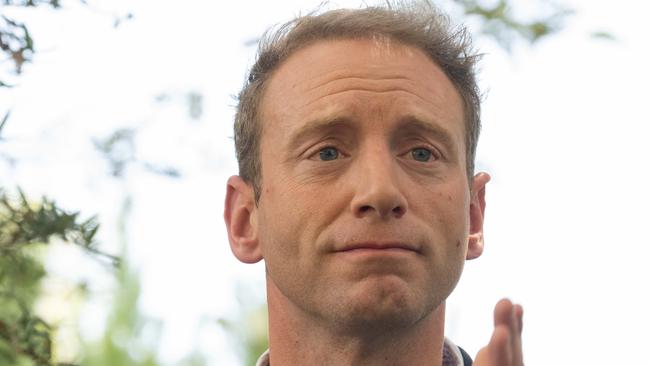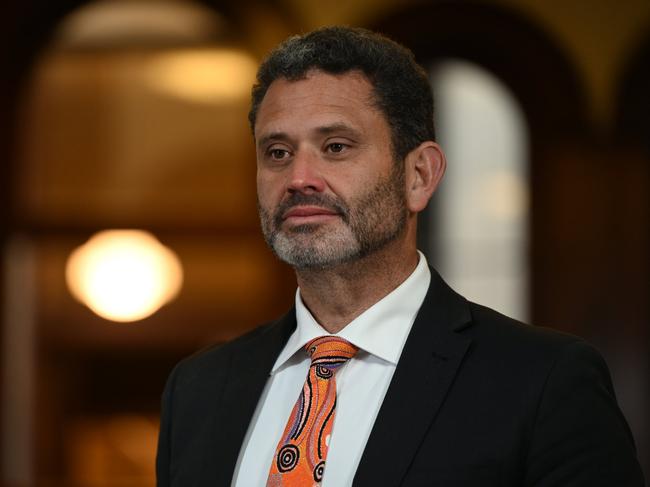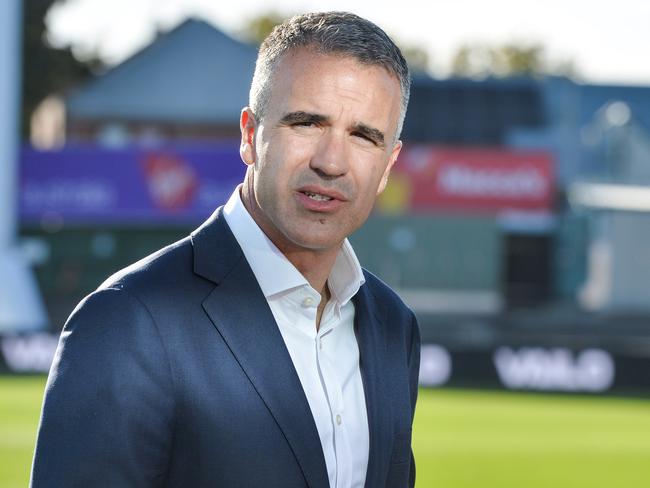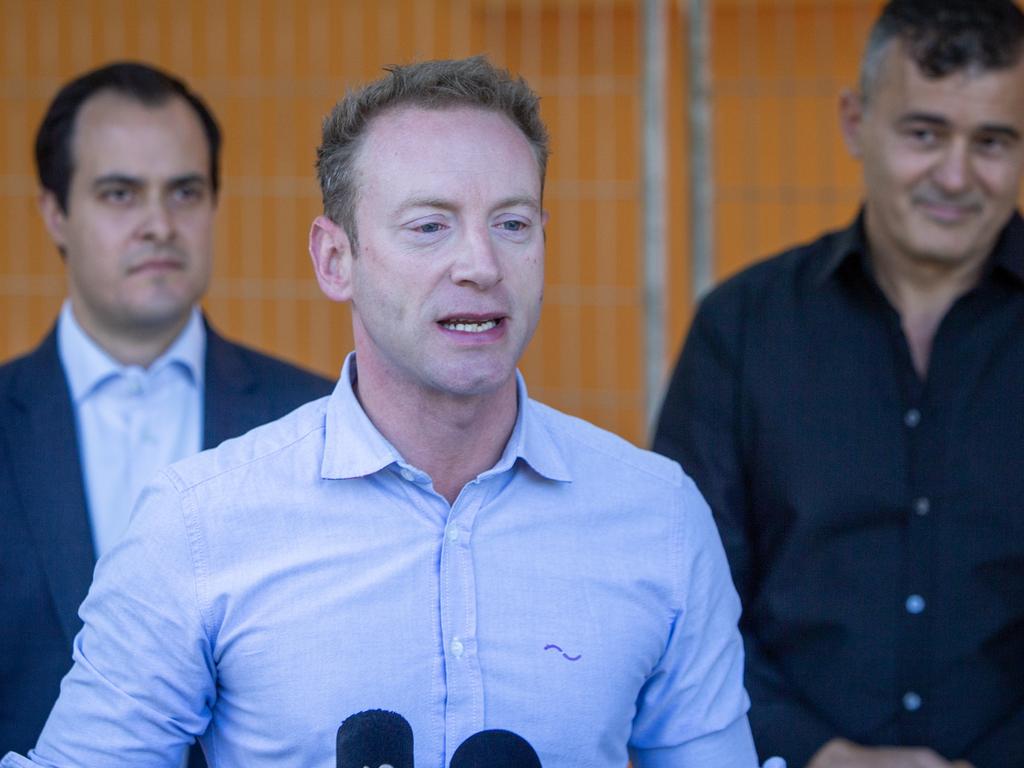SA Libs put future of Indigenous voice in doubt
Australia’s only elected voice to parliament could be scrapped within two years, as the South Australian Liberals toughen their stance after a dismal turnout in the first voice elections.

Australia’s only elected voice to parliament could be scrapped within two years, as the South Australian Liberals toughen their stance against the Indigenous advisory group after a dismal turnout in the first voice elections.
In a situation critics have described as embarrassing and laughable, voice delegates who were elected with as few as six votes in a statewide general election will have the right to address parliament, cabinet and departmental chiefs on policy matters.
Less than 10 per cent of the state’s estimated 30,000-strong Indigenous population voted in the voice elections late last month, with the turnout of 2583 voters resulting in some farcical results.
Voting was conducted across six geographic regions and of the 46 successful candidates, 12 polled fewer than 20 first-preference votes. The strangest results included four candidates polling zero – showing they didn’t even vote for themselves – and a female candidate beaten by a male candidate but declared the winner anyway to satisfy gender balance targets for that geographic region.
While SA Attorney-General Kyam Maher has defended the turnout for the first such election, The Weekend Australian understands senior SA Liberals believe the result should compel the party to go to the 2026 state election promising to scrap the voice.
The Liberals’ current position is to review the voice to see if it is working with the option of repealing it, but Opposition Leader David Speirs said last month’s “embarrassing” results brought new urgency to the debate.
Mr Speirs said the issue had now changed from being a question of whether the voice had the power to influence government policy, to whether it had any claim to legitimacy at all.
“The obvious question which now arises from such a dismal turnout is how can they claim to speak on behalf of all Aboriginal people in their geographical region,” Mr Speirs said.
“They can’t really. If in my Lower House electorate I only got 8 per cent of the vote, or even lower in the case of some of these candidates, I would be seen as an embarrassment. I would be seen as not having democratic legitimacy. Sadly – and it is quite sad – this is emerging as a failure from day one.

“The people who are part of this voice are good people, they are well-intentioned people, they seek to represent their people. But with such a low turnout, I don’t think they can claim they have got a democratic mandate.
“For them to be able to go onto the floor of the parliament – which is an extreme privilege – and make representations to ministers and department heads with such a slender mandate is questionable at best and potentially embarrassing.”
Mr Speirs confirmed the low voter turnout would be guiding the SA Liberals as they finalise their position on the voice ahead of the 2026 election.
“Our official position remains that we are very much open to repealing this,” he said. “The low turnout that has been demonstrated in the recent elections will certainly be something the opposition takes into consideration when deciding what to do with the voice moving forward to the 2026 state election.”
The issue has the potential to resonate for the SA Liberals, with many SA voters confused as to why the state has a voice anyway after the national referendum result clearly rejected the proposal.

While the SA voice was a clearly made pre-election promise by Peter Malinauskas before Labor’s 2022 victory – and the model used in SA was legislated with no change to the Constitution – many voters regard last year’s emphatic referendum result as a general signal of public antipathy towards the concept.
Troublingly for Labor, the highest No vote cast in Australia was in SA’s working class northern suburbs seat of Spence, where 72 per cent of people voted No in what was once the home of the Holden car factory.
But Mr Maher defended the results of the elections and said the voice would be going ahead “as planned” with the 46 elected delegates from the six regions coming to Adelaide for two days next week for an induction process run by the voice’s five-member secretariat.
“After that each of those regional bodies will elect two presiding members with the 12 presiding members forming the statewide voice,” Mr Maher told The Weekend Australian. “Then in the second half of this year the statewide voice will be up and running which can give advice and make representations to the parliament and government.”
Mr Maher said he was aware of Liberal criticisms of the turnout but accused opponents of hypocrisy, saying other elections had attracted modest numbers of votes. He attributed the turnout to several factors including the logistical difficulties of voting and the fact that some Aboriginal people had disengaged from politics after the defeat of the national voice.
He also said that SA’s four ATSIC elections in the 1990s never received more than 3000 votes, making the turnout last month “pretty pleasing for a first attempt”.
“We had a lot of fatigue after the referendum,” Mr Maher said.
“I have had a lot of people say to me that they want to get involved but not this time, and that they need to have a bit of time out after what happened last year. To get 2500 people voting in a voluntary election where some of the remote booths were only open for two hours on a weekday is a really good base to build from.
“If people criticise the small number of votes and say the voice should be abolished, if they’re going to be consistent they are also going to have to argue for the abolition of most upper houses.
“We have seen Ricky Muir’s motoring enthusiasts party, the WA daylight savings party, we’ve seen balance of power candidates elected to the Senate with a fraction of 1 per cent. We have seen local council elections in SA where no one voted.”






To join the conversation, please log in. Don't have an account? Register
Join the conversation, you are commenting as Logout